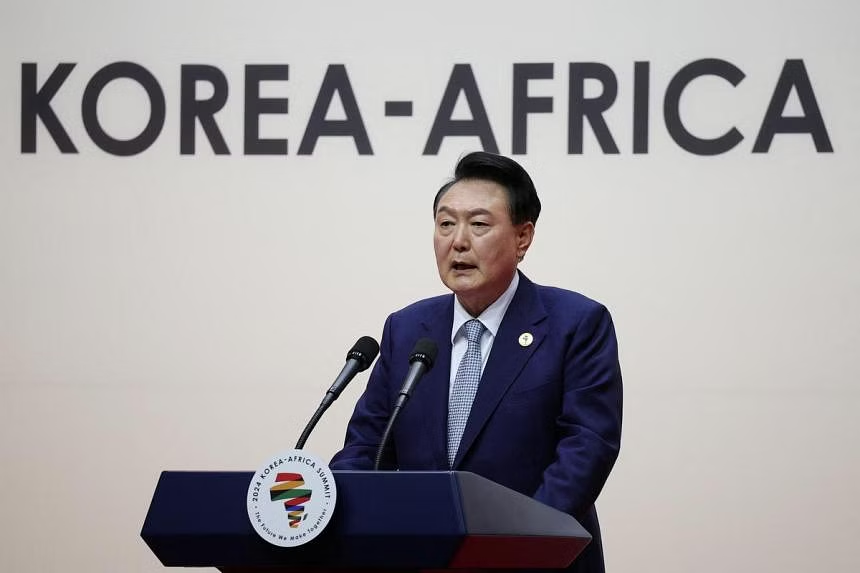South Korea is hosting a meeting this week with the presidents of 48 countries, and at the top of its agenda is aiding Africa’s industrial infrastructure and digital transformation, citing the continent’s abundant mineral riches and potential as a massive export market.
According to Kim Tae-hyo, deputy national security adviser to President Yoon Suk Yeol, “cooperation with Africa is not a choice but a necessity” and Africa is a “crucial partner” for South Korea to develop its economic advancements.
There are 48 national delegations present at the summit on Tuesday, including at least 30 heads of state. According to Yoon’s office, a joint statement will be released by Yoon and President Mohamed Ould Ghazouani of Mauritania, who is the chair of the African Union.
Business leaders from South Korea are organizing a business forum on investment, industrial development, and food security this Wednesday. “Africa’s strategic importance has never been greater,” Kim said.
Leading semiconductor manufacturers and the world’s fifth-largest automaker, which is pushing for electrification, are based in South Korea, which is also one of the biggest energy consumers in the world. According to Yoon’s office, collaboration with Africa is essential since it provides 30% of the world’s essential minerals, such as manganese, cobalt, and chrome.
Yoon has been meeting with the leaders of Tanzania, Ethiopia, and Sierra Leone since Friday. On Monday, he is expected to meet individually with the leaders of Zimbabwe, Togo, Rwanda, and Mozambique.
In the meantime, Ethiopia inked a $1 billion finance agreement over four years for infrastructure, science and technology, health, and urban development, while Tanzania announced that it would borrow $2.5 billion through concessional loans from South Korea over the next five years.
Reaching out with offers to assist with digital transformation and industrial infrastructure, South Korea is attempting to get a foothold in a massive and rapidly expanding market that is home to 1.4 billion people, most of whom are under 25.
Several nations are anticipated to sign agreements meant to create the framework for trade and investment, which will assist in creating the administrative framework for increased trade freedom and sophisticated customs administration, according to Kim.
Plans for collaboration on climate change measures and assistance with agricultural technologies are also on the table.

